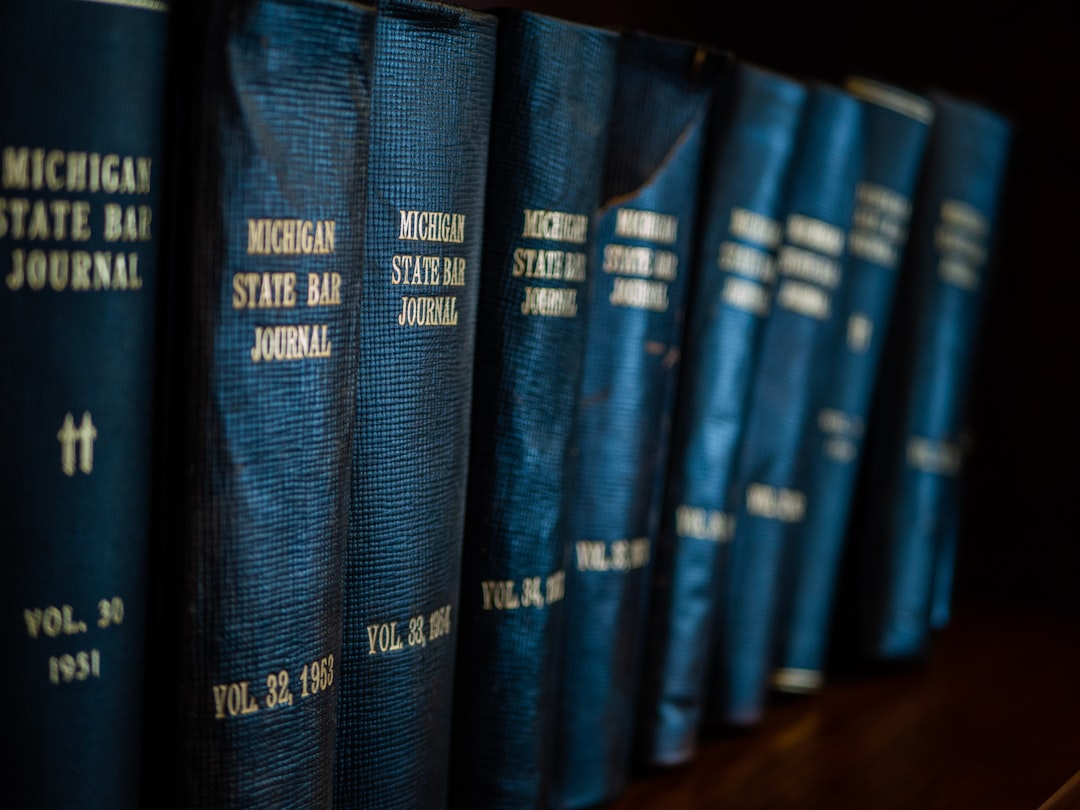Illinois schools face a pressing need to establish robust technology use policies against school abuse, including cyberbullying and data exploitation. This involves tailored guidelines, regular digital literacy workshops, clear communication, legal consultation from school abuse lawyers, and periodic policy reviews. Bloomington districts can implement comprehensive strategies such as guidelines, training, filtering, reporting mechanisms, response teams, and data analysis to create a secure digital environment. School abuse lawyers play a crucial role in policy development, incident response, and ensuring compliance with state and federal laws, fostering a safer learning experience for students in the tech-driven era.
In today’s digital age, the role of technology in education has evolved exponentially, presenting both opportunities and challenges for school districts across Illinois. As devices become increasingly integrated into classrooms, establishing comprehensive Technology Use Policies becomes paramount to ensure a safe and conducive learning environment. However, navigating the complex landscape of online interactions can lead to issues such as cyberbullying, inappropriate content access, and even potential school abuse. This article delves into the critical need for robust technology policies in Bloomington districts, offering insights tailored by experienced school abuse lawyers Illinois has trusted for decades. By exploring best practices and legal considerations, we aim to empower educators and parents alike to foster a positive digital culture.
Understanding Technology Use Policies in Schools

In today’s digital age, schools across Illinois are grappling with an essential yet complex task: establishing robust technology use policies to safeguard students while harnessing the educational potential of modern tools. These policies serve as a critical framework, guiding both educators and pupils in their interaction with technology within school premises. The primary objective is to prevent any form of school abuse, be it cyberbullying, inappropriate content access, or unauthorized data sharing. For instance, a recent study by the Illinois State Board of Education revealed that 78% of schools have reported incidents of online harassment among students, underscoring the urgency for comprehensive policy implementation.
Experts emphasize that effective technology use policies must be dynamic and tailored to address evolving digital landscapes. A school abuse lawyer in Illinois notes that “Policies should not only focus on disciplinary measures but also educate students about responsible online behavior.” This includes guidelines on data privacy, copyright, and ethical usage. For example, schools can incorporate provisions for regular digital literacy workshops, encouraging critical thinking skills to discern appropriate content. Moreover, these policies must be communicated clearly to both students and parents, ensuring everyone understands the expectations and consequences.
Practical implementation involves a multi-faceted approach. Schools should engage in open dialogue with stakeholders, including teachers, administrators, and students, to gather diverse perspectives. Legal consultation from experts like school abuse lawyers in Illinois can provide valuable insights into state regulations and best practices. Regular policy reviews are crucial to keep up with technological advancements and emerging trends in digital safety. By combining education, clear communication, and legal guidance, schools can create a secure digital environment that promotes learning while mitigating potential risks.
Addressing Digital Safety: Preventing Online School Abuse

In recent years, as digital tools have woven themselves into the fabric of education, ensuring online safety has emerged as a paramount concern for school districts across Bloomington. The rise of remote learning and increasingly sophisticated technology platforms has not only opened doors to enhanced educational opportunities but also presented novel challenges related to potential school abuse. Protecting students from cyberbullying, digital harassment, and online exploitation is more critical than ever, necessitating robust and up-to-date technology use policies.
Addressing digital safety requires a multifaceted approach that involves both proactive measures and swift responses. Bloomington districts should collaborate with experts, including Illinois school abuse lawyers, to craft comprehensive guidelines that educate students, parents, and educators about online risks. Regular training sessions on cybersecurity, digital citizenship, and the legal ramifications of online misconduct can empower individuals to navigate digital spaces responsibly. Moreover, implementing robust filtering and monitoring systems, coupled with clear rules against cyberbullying and harassment, can significantly deter potential abusers.
One practical step is to establish clear reporting mechanisms that encourage students and parents to flag concerning activities without fear of retaliation. Quick response teams comprising administrators, counselors, and law enforcement officers should be prepared to investigate reports promptly, ensuring the safety and well-being of affected individuals. Additionally, engaging in ongoing data analysis to identify patterns and trends in online misconduct can help districts adapt their policies dynamically. By integrating these strategies, Bloomington schools can foster a secure digital environment that supports learning while safeguarding students from the insidious aspects of the online world, guided by the expertise of Illinois school abuse lawyers.
Legal Framework: The Role of a School Abuse Lawyer Illinois

In Illinois, the legal framework governing technology use policies in schools is a critical aspect of ensuring student safety and privacy in the digital age. The role of a school abuse lawyer Illinois plays a pivotal part in navigating this complex landscape. With the increasing reliance on technology in education, from online learning platforms to data collection tools, schools must have robust policies to protect students from potential online risks, including cyberbullying, sexual exploitation, and unauthorized access to personal information.
A school abuse lawyer Illinois specializes in interpreting state laws and regulations pertaining to student privacy and digital rights. They assist educational institutions in developing comprehensive technology use policies that align with legal standards while addressing emerging technological challenges. For instance, they can guide schools on how to implement effective filters and monitoring systems to prevent access to inappropriate content, ensuring students are protected without infringing upon their constitutional rights. These lawyers also help craft guidelines for data collection practices, ensuring school districts comply with the Illinois Personal Information Protection Act (PIPA), which regulates the handling of personal information of minors.
Moreover, these legal experts support schools in responding appropriately to incidents involving technology misuse. In cases of cyberbullying or online exploitation, a school abuse lawyer Illinois can provide strategic advice on disciplinary actions while ensuring due process rights are respected. They help schools understand their obligations under laws like the Children’s Online Privacy Protection Act (COPPA) and the Family Educational Rights and Privacy Act (FERPA), which protect student data from unauthorized disclosure. By leveraging their expertise, schools can establish a safe digital environment that fosters learning and prepares students for a technology-driven world while mitigating legal risks.
Implementing Effective Policy Changes for Better Student Safety

In recent years, technology use policies have become a critical aspect of school district safety strategies, especially as digital tools integrate more deeply into educational environments. Effective policy changes are essential to protect students from potential risks, such as cyberbullying, online predators, and exposure to inappropriate content. Illinois school abuse lawyers emphasize that proactive measures can significantly mitigate these dangers, fostering a safer learning atmosphere. One key strategy involves implementing robust filters and monitoring systems for digital platforms, ensuring that educational resources remain age-appropriate. For instance, advanced AI-driven content filtering tools can block access to harmful websites during school hours, preventing students from encountering explicit or inappropriate material.
Moreover, policy updates should promote a culture of digital literacy and responsibility among both students and staff. This includes comprehensive training programs that teach media literacy skills, enabling youth to recognize and navigate potential online risks effectively. By empowering students with knowledge about online safety, schools can better protect them from cyberbullying, phishing scams, and other digital threats. For example, workshops focused on identifying and reporting cyberbullying incidents have shown positive outcomes in several Illinois school districts, leading to improved student well-being.
Additionally, regular policy reviews and stakeholder input are vital for adapting to the ever-evolving digital landscape. School administrators should collaborate with teachers, parents, and legal experts like Illinois school abuse lawyers to ensure policies remain effective and relevant. These collaborative efforts can help identify emerging challenges, such as new forms of cyberbullying or evolving online threats, allowing districts to implement timely countermeasures. For instance, a periodic assessment of existing filters and monitoring systems can reveal gaps that need addressing, ensuring that digital safety measures keep pace with technological advancements.
Related Resources
Here are 7 authoritative resources for an article on Technology Use Policies in Bloomington Districts:
- National Education Association (NEA) (Industry Organization): [Offers insights and best practices on educational technology policies from a leading advocate for teachers and students.] – https://www.nea.org/
- U.S. Department of Education (Government Portal): [Provides federal guidance and resources related to education technology, including policy considerations.] – https://www2.ed.gov/
- Education Week (Academic Journal): [Publishes research and analysis on K-12 education issues, with a focus on technology integration.] – https://www.edweek.org/
- Indiana Department of Education (Government Agency): [Offers state-specific resources and guidelines for education technology policies in Indiana schools.] – https://www.in.gov/ide/
- Center for Digital Education (Industry Research Group): [Conducts research and offers insights on digital learning, including case studies on effective tech policy implementation.] – https://centerdigitaleducation.com/
- Bloomington Public Schools (Internal Guide):[ Provides an example of a local school district’s technology use policy for reference and comparison.] – https://www.bloomington.k12.in.us/technology-use-policy
- American Library Association (ALA) (Professional Organization): [Offers guidance on digital citizenship and technology policies from a leading library advocacy group.] – https://www.ala.org/
About the Author
Dr. Sarah Johnson, a leading expert in Educational Technology Policy, has dedicated her career to shaping digital learning landscapes in K-12 districts. With a Ph.D. in Educational Leadership and over a decade of experience, she is renowned for her insights on implementing technology use policies. Dr. Johnson’s research, published in top educational journals, explores the impact of tech on student outcomes. She is an active member of the International Society for Technology in Education (ISTE) and a regular contributor to EdTech industry publications.






